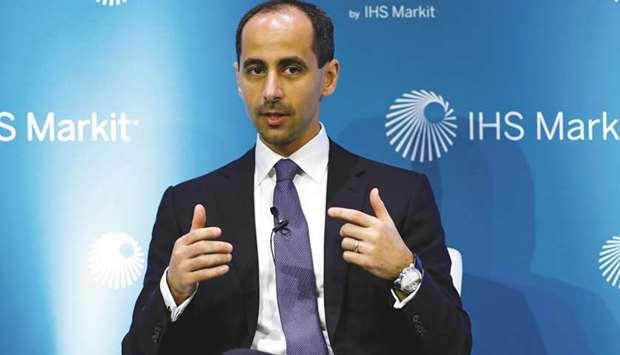Bloomberg/Kuwait
Kuwait plans to boost production from Canadian shale deposits by two thirds and increase output of natural gas in Australia as the Opec member ramps up efforts to find and develop overseas deposits of the fuel.
The international upstream arm of state-owned Kuwait Petroleum Corp sees output of almost 20,000 barrels of oil equivalent a day at its Canadian shale gas project by year-end, up from 12,000 currently, Sheikh Nawaf Saud al-Sabah, acting chief executive officer, said in a recent interview in Kuwait City.
“It will rise to about 60,000 or so once we fully develop it, which will be in the mid-2020s,” he said. “We’re just beginning to understand its potential.”
In Australia, the company known as Kufpec won exploration rights to three new blocks in February and April. It’s producing almost 40,000 barrels of oil equivalent a day in that country and aims to raise output and produce more liquefied natural gas for export, al-Sabah said, without specifying targets. Kuwait has long planned to increase its global capacity to produce gas as well as oil. The Gulf nation currently can pump as much as 3mn barrels a day of crude from its wholly owned fields, and KPC targets a daily capacity of 4mn by next year. As a member of the Organization of Petroleum Exporting Countries, however, Kuwait has pledged to cap its oil output as the group seeks to balance the market and prop up crude.
Like many energy producers, Kuwait sees gas as crucial to future growth. Gas use is seen rising faster than demand for oil and coal as policies shift toward lower carbon emissions. The amount of new gas-production capacity investments this year could set a record, according to consultant Wood Mackenzie Ltd.
In Alberta, Canada, Kufpec plans with its joint-venture partner Chevron Corp to start developing the Waskahigan and East Kaybob areas, drilling the first of more than 370 wells over 10 years. The areas are part of the Kaybob Duvernay project producing shale gas and natural gas liquids.
“We continue to look for gas prospects in Australia,” al-Sabah said. Kufpec partnered with Woodside Petroleum Ltd at one of its blocks there, and al-Sabah’s company is exporting gas via Woodside’s Wheatstone LNG facility. Kufpec sells half its production from there under long-term agreements.
“The other half is sold with a break clause that allows us to take those molecules to Kuwait if and when we need it,” he said. “Right now the LNG market is essentially a buyers’ market, so it doesn’t make sense for us to break a long-term contract” just to sell to KPC when it can get competitive pricing elsewhere, he said.
LNG producers have feared that a massive build-out of new export projects, which began a decade ago, will outpace consumption growth and leave cargoes looking for homes. Spot prices have already tumbled since last fall and are at a steep discount to LNG sold on long-term, oil-linked contracts.
Kufpec, known formally as Kuwait Foreign Petroleum Exploration Co, may supply KPC when the global market tightens, possibly by the mid-2020s, al-Sabah said.
The company has total assets of 3.4bn dinars ($11.2bn) and is well-funded right now for its current plans.



